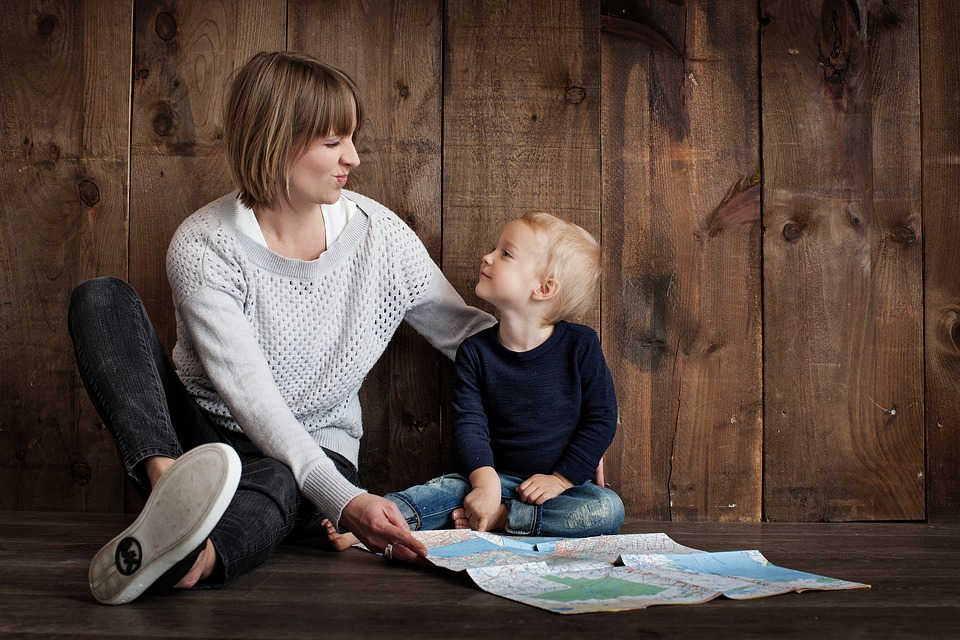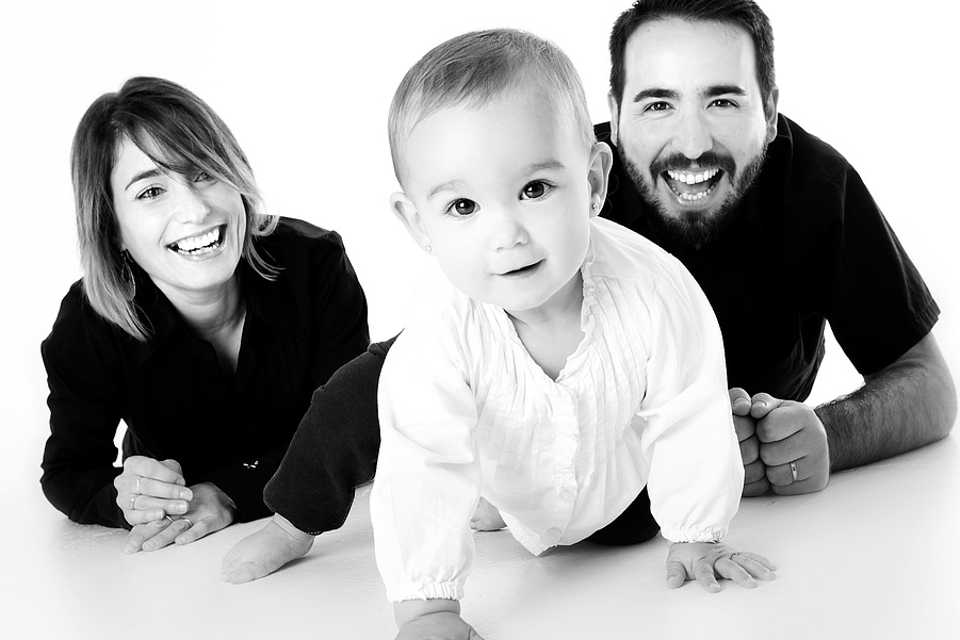It can be a precise choice, something planned for some time, or a chance, a twist of fate. In any case, raising a child abroad is definitely one challenge. But a challenge that brings with it many opportunities. In this article I address the 5 things that I think it is essential to know before deciding to raise a child abroad. And do it anyway.
Read also 5 things to learn from non-Italian mothers.

Raising a child abroad: You will not automatically be a citizen of another country
When my son was born the first question everyone asked me was: is he a British citizen? Well, although I would like to, no. He is an Italian citizen. In fact in the world there are few countries where it is enough to be born there to automatically be citizens. To mention the best known and most popular ones by our fellow citizens, the United States and France. Is called ius alone. It is opposed to the system of law that exists in Italy, Great Britain and most of the Western world, lo jus sanguinis. Basically, the first means that what matters to establish the citizenship of an individual is the place where he is born. The second, on the other hand, is based on blood ties, that is, on the origin of the parents.
Of course, if you have a child with a citizen of the country you moved to, they will almost certainly have dual citizenship. Yours and that of your partner. If you are both Italian, however, it is more likely that he too is an Italian citizen. It is important that you are aware of this in order to proceed in the right way.
Keep in mind that:
- the times of registration of a birth in Italy they depend on the municipality chosen by the parents (usually the one of the mother is chosen). Sometimes the files are processed months after the arrival of the documents;
- usually the passport arrives before the registration of the birth in Italy. This is essential because you will want to introduce your baby to family and friends. Without a passport you cannot move;
- to obtain your passport you must contact the consulate closer. The times are long enough, so move in time.
Raising a child abroad: You will be a lot alone, but you will find new friends
Foreign mothers like you. In Italy you can in fact count on grandparents, uncles, cousins, friends, neighbors. In short, there is a whole network of people who can be close to you and help you when the baby is born and in its first months. Which is then the moment when it is particularly important to have support, both practical and spiritual.
Being abroad this support network you do not have. And certainly there loneliness is one of the worst sides to face when you move out of your country. But the great strength of the emigrants is the desire to build another life and the tenacity in trying to make new friends. So even if at first it may seem very difficult to settle in and meet new people, it is very likely that there are communities of emigrants like you in any country you have moved to. It will often be groups of mothers and new mothers who have the same doubts, your needs and the same desire to share, spend time together, fight loneliness.
Also, when I think of Britain, there are many opportunities here for activities with children. Knowing other mothers, local and foreign at the same time. Ask the midwife, browse online for courses and groups of mothers, you will surely find something that is right for you.

Raising a Child Abroad: The school system can be very different
Living outside Italy also means dealing with a school system that can be very different. Both for the articulation of the classes, both for the programs, and for the way of teaching. Sometimes even the age at which compulsory school is started and finished is different.
One of the things to remember is the need to evaluate schools in which they want to have their children study in time and choose to live in the area of competence of the chosen institution. In Great Britain, for example, it is essential that the family is within the catch area of a school rated at least as "good", if not "outstanding". In this way the child is guaranteed to be able to progress in his studies by choosing the best schools, up to university. Here this aspect is a bit of aobsession with parents and this is clearly seen in house prices. The better the school's rating, the higher the housing prices around it.
Everything too the period preceding the start of compulsory schooling it can be different. The nursery and kindergarten, for example, are replaced here by the nursery. These are private structures (there are no public ones), so there is no problem of entering the ranking to have access to the service, but the costs tend to be much higher than in Italy (up to double the fee you would pay for a private asylum in our country).
Raising a Child Abroad: Birthday parties are completely different
Il way of interacting with each other in families having children who go to school together is a source of infinite wonder for an Italian. Obviously it depends on the individual people you meet, but the particular culture that characterizes the country also has a profound influence. In a country like Great Britain where people are reserved and have a hard time letting go and getting to know others, for example, it is more difficult for friends to form.
Le habits then, so deeply rooted when unaware, they can be very different and cause fools and moments of embarrassment. A typical example are the children's birthday parties. I have never attended in person because my little one is still in preschool age. But they told me that they take place very differently from ours:
- they are organized well in advance and usually take place indoors;
- they have a start time that everyone shows up on time and also an end time;
- parents usually do not stay but only come to retrieve their children when it is over. That is to say that it is not an opportunity to make friends between mothers and fathers;
- are announced by a card of invitation and after a few days they are distributed the cards thanks to the participants;
- the cake is cut but not eaten together. Each child gets a slice in his own party bags where there are also candies, other sweets or gifts;
- the gifts do not open all together, but only after the party, at home.
For us Italians, such a party is almost inconceivable. And this is just one example of how the ways of living and daily activities of families abroad can change.
Raising a child abroad: he will be a citizen of the world
A child raised abroad will, in my opinion, many advantages on his peers who have never moved from home. The first is the bilingualism. In addition to the Italian he has learned at home, he will also have a perfect knowledge of a second language, that of the country where he lived. And with virtually no effort. He will learn it at school, talking to his classmates, in the park, from the nanny, from cartoons on TV, but without any formal study (if not for spelling and rules, of course). Having learned it in the first years of life, then, not only will he have one linguistic competence equal to that of a native speaker, but also an impeccable pronunciation.
Then it is likely that will have friends from different backgrounds. An expat tends to make groups of friends not only among locals, but also - and often - among other expats like himself. Italians but not only. Attending different people, who have different cultures, ways of thinking and living is undoubtedly a great wealth.
Finally, they will be part of his baggage for life resourcefulness, self-confidence, ability to adapt and cope with change. Like his parents before him, he is likely to travel the world and be at home wherever he goes. And that it has an edge over those who have not lived this experience.





